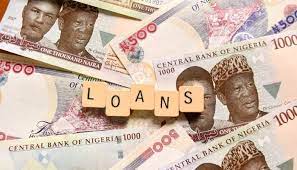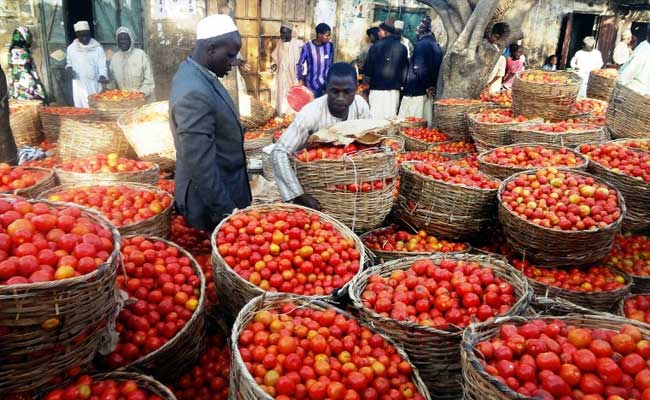Fuel Subsidy: Suspend Disbursement Of $800m Loan To FG, SERAP Tells World Bank
Socio-Economic Rights and Accountability Project (SERAP) has urged the World Bank President Mr David Malpass to use his “good offices to suspend any disbursement of the $800m loan to the Federal Government and to request the incoming administration to provide satisfactory explanations for the loan.”
SERAP urges Mr Malpass and the World Bank “to reopen discussion on the reportedly approved $800m loan with the incoming administration to clarify the details on the rationale and use of the loan because the term of office of the government of President Muhammadu Buhari ends in May 2023.”
The Federal Government in April announced its plan to spend the $800 million loan as ‘part of its subsidy palliatives measures’. Also, last week, President Buhari requested the Senate’s approval for the World Bank loan. It is unclear whether the request to the Senate is for a fresh loan or the one announced in April.
In the letter dated 13 May 2023 and signed by SERAP deputy director Kolawole Oluwadare, the organization said: “The World Bank should comply with its own Articles of Agreement in disbursing any loans. The Bank should not sacrifice international standards in the rush to disburse the $800m loan to the government.”
SERAP said, “Suspending any disbursement of the loan to the government would reduce the risks and vulnerability to corruption and mismanagement.”
The letter, read in part: “SERAP is concerned that the government is seeking to spend the loan when it has barely two weeks to leave office and when the project objectives and intended purposes for which the loan is reportedly approved and will be disbursed remain unclear.”
“The government has not satisfactorily explained or justified the need for the loan at this time, especially given the lack of clarity on its use and the crippling debt burden, and the disproportionately negative impact of these retrogressive measures on poor Nigerians.”
“The World Bank cannot close its eyes to these important transparency, accountability and human rights issues.”
“The National Economic Council (NEC) on April 27 reportedly suspended the planned removal of subsidy on petroleum products by the end of the Buhari administration.”
“We would consider the option of pursuing legal action should the World Bank refuse to suspend the disbursement of the loan to the Federal Government and to implement the other recommendations contained in this letter, and we may join the government in any such suit.”
“The crippling debt burden is a human rights issue because when the entire country is burdened by unsustainable debts, there will be little money left to ensure access of poor and vulnerable Nigerians to legally enforceable socio-economic rights.”
“There is also a lack of transparency and accountability in the spending of the loans so far obtained. The details of the projects on which approved loans are spent are often shrouded in secrecy.”
“The Bank has a responsibility to ensure that the Federal Government is transparent and accountable to Nigerians in any discussion to obtain loans, credits or grants from the bank and how it spends any approved loans, credits or grants.”
“The Bank’s power to provide loans is coupled with a fiduciary responsibility to ensure that the spending of such funds by the government meets international standards of transparency and accountability, including those entrenched in article 5 of the UN Convention against Corruption.”
“The World Bank should also seek transparency and accountability commitments if the incoming government decides to use the loan to implement the National Social Safety Net Programme (NASSP) because the spending on the programme has been mostly shrouded in secrecy.”
“Under the programme, the government reportedly plans to transfer the sum of N5,000 per month to 10.2 million poor and low income households for a period of six months.”
“SERAP encourages you and the World Bank to in any future engagements with the incoming government insist on accessing information on the spending by the government on the National Social Safety Net Programme (NASSP) since 2015 and the publication of the details of such spending.”
“Under Article 1 of the World Bank Articles of Agreement, the stated purposes of the Bank include ‘to assist in the reconstruction and development’. The Bank is also to ‘be guided in all its decisions by the purposes.’”
“Under Article 3 section 4(vii) of the World Bank Articles of Agreement, loans made or guaranteed by the Bank ‘shall be for the purpose of specific projects of reconstruction or development.’ Also, under Article 3 section 5(b), the Bank ‘shall make arrangements to ensure that the proceeds of any loan are used only for the purposes for which the loan was granted.’”
“According to our information, the Federal Government of Nigeria recently secured a $800 million loan from the World Bank.”
“The government reportedly plans to spend the loan as part of its ‘subsidy palliatives measures’, and aims to target 50 million vulnerable Nigerians or 10 million households.”
“According to the Debt Management Office, Nigeria’s total public debt stock, including external and domestic debts, increased to N46.25 trillion or $103.11 billion in the fourth quarter of 2022.”





